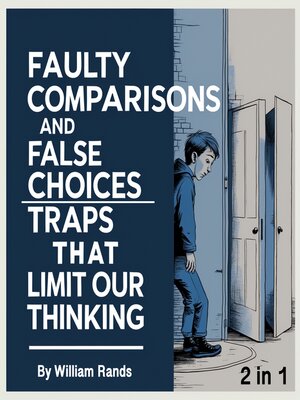Faulty Comparisons and False Choices
audiobook (Unabridged) ∣ Traps That Limit Our Thinking (2 in 1)
By William Rands

Sign up to save your library
With an OverDrive account, you can save your favorite libraries for at-a-glance information about availability. Find out more about OverDrive accounts.
Find this title in Libby, the library reading app by OverDrive.



Search for a digital library with this title
Title found at these libraries:
| Library Name | Distance |
|---|---|
| Loading... |
This book contains the following titles:
- The False Dilemma: A false dilemma, also known as a false dichotomy, is a logical fallacy that occurs when only two options are presented as the only possible choices, despite the existence of other viable alternatives. This simplification of choices creates an illusion of a limited range of possibilities, forcing individuals to pick between two extremes. The false dilemma is often used to manipulate thinking, steer conversations, and influence decisions in various contexts, from political discourse to everyday life.
- The False Consensus Effect: The False Consensus Effect refers to the cognitive bias where individuals overestimate the extent to which others share their beliefs, values, and opinions. This phenomenon can be seen across a wide range of social, political, and personal contexts, often shaping our perception of how common or widespread our views are. Essentially, people tend to assume that their experiences and perspectives are more universally shared than they truly are. This can lead to significant misunderstandings, skewed decision-making, and a distorted view of the world.







